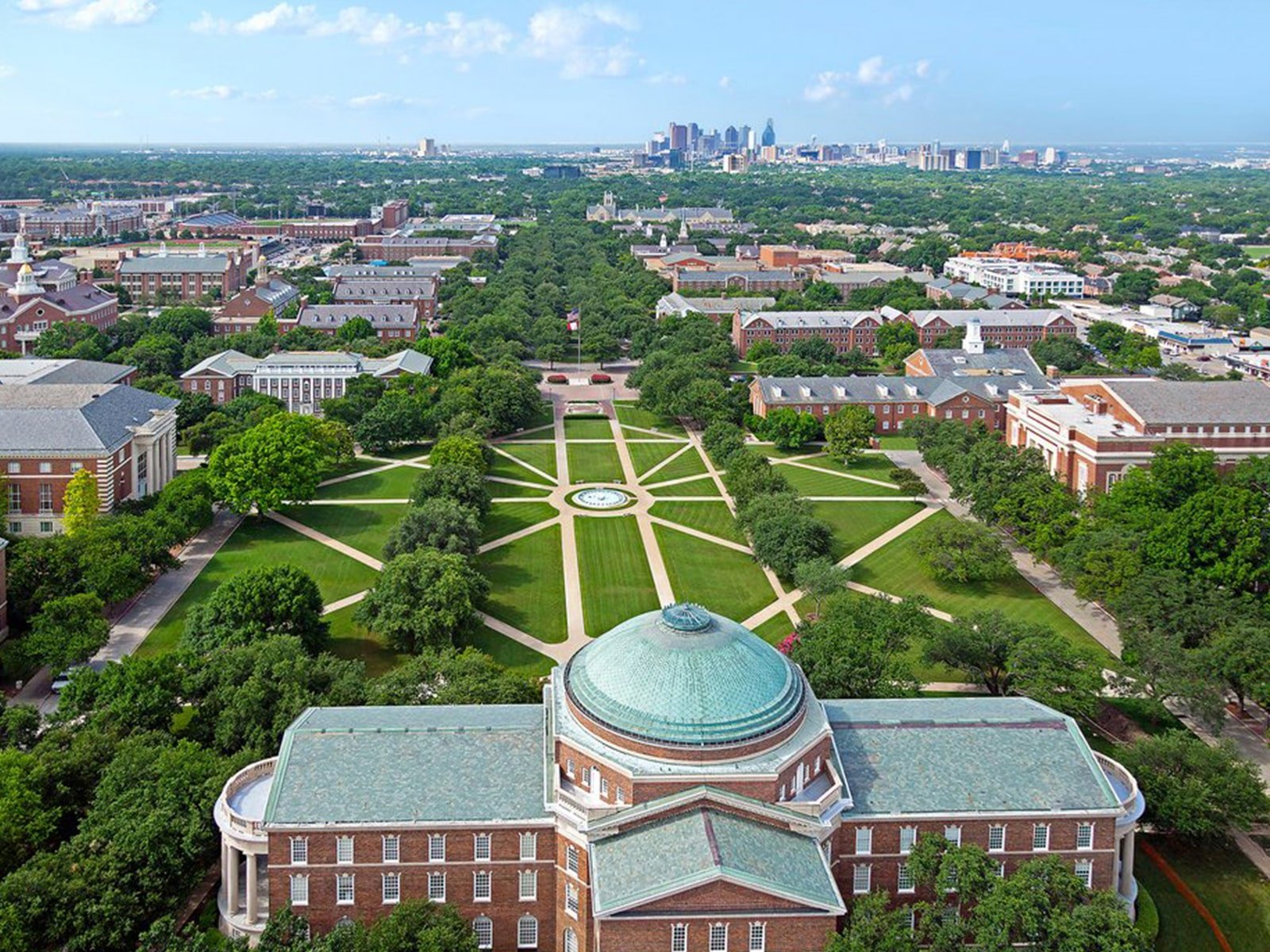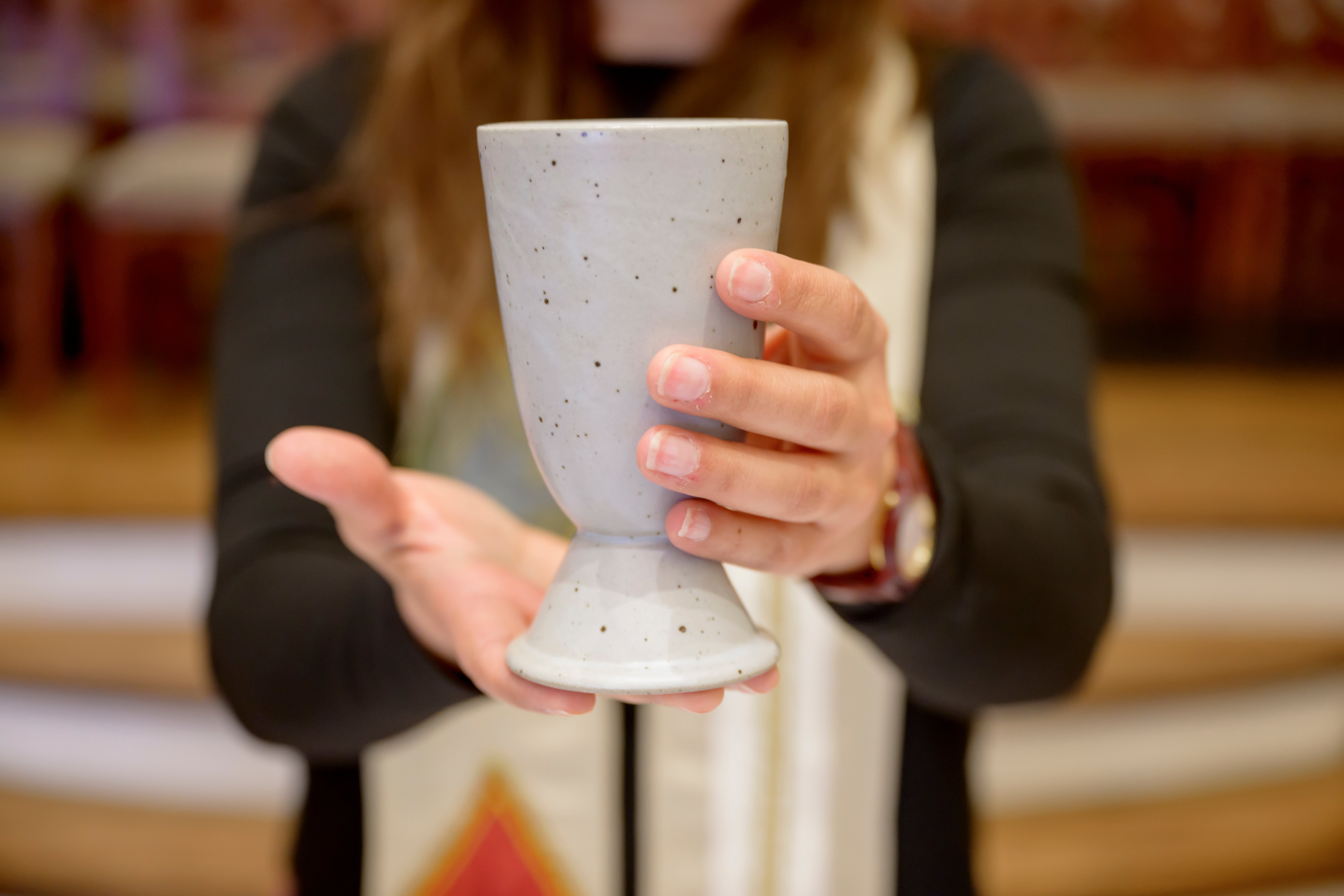It can be difficult to determine if you’re being called to ministry. And even when you’ve finished the hard work of determining if you are called, it can become even more complicated to figure out what you are called to and how to get there.
Reading biblical texts, having conversations with God and Christian mentors, and researching different roles in ministry will all help you determine if ministry is right for you. Everyone has a different journey and story, but this blog will walk you through the whole process.
What Is a Call to Ministry?
People don’t just become ministers. No one should simply choose to become a pastor like you might choose any other career. Instead, God tells people when they should pursue vocational ministry. That call is often verified by the church through education, anointing or a denominational process.
A call to ministry can come in a variety of ways. Some people are suddenly struck with what they should do, God seems to speak clearly and decisively in a moment. For other people, the call comes more slowly. There might be little hints along the way. Maybe a mentor encourages you to consider ministry, or you may begin to see signs in yourself.
Many people throughout time have received a call to ministry from God. The Bible is littered with call stories that are worth reading. Perhaps some of the following stories resemble your own call.
- Moses came up with excuses and was hesitant to answer the call (Exodus 3).
- Esther never heard directly from God. A mentor gave her instructions (Esther 4).
- Jeremiah thought he was too young to answer the call (Jeremiah 1).
- Isaiah had a mystical vision that prompted his call (Isaiah 6).
- Mary took a challenging call head-on (Luke 1 ).
- Paul reversed his beliefs when he was suddenly confronted with his call (Acts 9).
It’s great to see calls in the Bible that are similar to your own. But remember, all of our calls are like the call of Abraham to “Go to the land I will show you” (Genesis 12). God calls each of us to a mysterious journey. Although we cannot see where God will ultimately lead us, we can trust God to reveal the next step we should take.
Practicing Discernment When it Comes to Your Calling
If you did not receive a sudden, clear, perhaps even audible, call from God it can be difficult to determine if you are really called. Even if your call was sudden and clear, the days, months and years following require their own discernment practices to determine what your next steps might be. The response to uncertainty in any Christian’s life is discernment. One or more of the following practices may help you determine if you have a call:
prayerful meditation on your call
Ignatian examen for consolation or desolation
pilgrimage to the site of a holy person’s call to ministry
lectio divina with biblical call narratives and topics you may be called to
sing songs or chants related to listening to God’s voice of your call
Not all of these practices will be familiar to you. Do a quick internet search to learn more about any you don’t recognize.
Few people discern their call to ministry in a vacuum. If you still aren’t sure about your call to ministry, ask someone to help you discern your call. Some helpful people may include:
- a pastor or other leader in your church
- a spiritual director or Christian counselor
- someone who works for your larger denomination
- someone who currently holds the ministerial role you are considering
- family and friends who know you well
- faithful Christians in your community or congregation
Note While Discerning: God is not a genie in a lamp waiting to grant wishes. Jesus demonstrates throughout scripture that what God desires most is relationship with God’s people. Seasons of discernment are not only for answers, they’re opportunities to draw close to the Creator and be reminded of our need for God’s presence.
The following checklist may help you continue your discernment process:
- Is there alignment between your Core being and your calling?
- Are you passionate about your faith and sharing God’s love?
- Do you have an inner longing for servant leadership?
- Are you gifted to teach, preach, council and live out God’s word?
- Are lives enriched when you share God’s gifts?
- Is your community speaking into your call?
- Are you ready to respond to God’s call?
Read more about each of these points by reading Perkin’s Called to Serve document.
Is God Calling Me to Be a Pastor?
The call to become a pastor is a unique call amid many ministerial options. If you are called to a pastoral role in the United Methodist Church you are probably called to ordination as an elder (unless you explore work as a local pastor). Elder is distinguished from the order of deacon in that they’re to attend the Word, Sacrament, Order, and Service (¶¶340). That means pastors:
- preach and teach scripture from a Christian perspective
- offer the sacraments of baptism and communion
- organize and lead the local church
- embody Jesus through servant leadership
If you feel called to not only participate in but lead the local church, the role of pastor may be for you. Pastor is an incredibly visible role within ministry, so many people assume their only option is to become a pastor when they sense a call to ministry. Although many people are called to pastoral ministry it’s only one of many unique ministerial options.
You may sense a calling to ordination as a deacon instead. These are ordained clergy who don’t attend as directly to the church body but focus on the healing of the outside world. Their order is distinguished by the marks of Word, Service, Compassion and Justice (¶¶329). They seek to attend to the spiritual and physical needs of those on the margins of society and serve as a bridge between them and the church body.
Let’s explore ministry roles that include elder, deacon and lay ministry:
- Hospital and Military Chaplains: The role of chaplain generally falls under the order of elder. However, it’s distinct from the role of pastor in that their main role is to provide acute pastoral care to people in crisis. Chaplains generally work in pluralistic settings and must be comfortable with administering pastoral care with ecumenical and interreligious grace.
- Missionaries: These individuals serve in intercultural and often interreligious contexts. They may serve in ministerial or compassionate roles. They can be ordained as deacons or elders. Learn more about mission opportunities in the United Methodist Church by visiting umvim.org.
- Theologians: These individuals are academics, often professors, who lead Christian thought. They specialize in topics such as systematic theology, biblical studies and languages, church history, Christian ethics or missiology. Ordination is often optional, but higher education is a must.
- Theology Communicators: These individuals communicate theological concepts to the public. They often work in Christian publishing, film or as social media influencers. Some do this on the side, while others make this their full-time pursuit. Either way, further education is helpful. Choose a program that offers creative opportunities like MAST+ at Perkins.
- Worship Leaders: These individuals have the skills of professional musicians and generally play key roles in planning liturgy and leading contemplative practices in the church. Worship leaders are generally lay people, but they are educated in both music and theology.
- Non-profit Leaders: These individuals are often ordained as deacons. They build up the poor and marginalized in their communities, and are the bridge between a church congregation and the work to be done in the world.
- Spiritual Directors or Christian Counselors: These are people who earn degrees in the fields of counseling or psychology but choose to use their gifts and graces to offer spiritual guidance to clients. They often earn a certificate in spiritual direction to aid in their ministry.
- Lay Leaders: Not everyone is called to vocational ministry. God calls all Christians to be active in the church and healing of the world. Be attentive to what God is doing where you’ve already been planted, and invest in further education to enhance your vital work where you are.
Ask God if any of these ministerial roles is for you. Pray carefully about each of them. This list is certainly not comprehensive, God may have something unique in store for you. Whatever you do, don’t stop looking to God and those around you for guidance.
Next Steps: Exploring a Theological Education
There’s no cookie-cutter call to ministry and no one-size-fits-all path to coming to know God’s plan for your unique life. With that said, there are benefits to exploring higher education options for ordained and lay ministry.
Applying to a graduate school, like Perkins School of Theology, is a great way to launch your next step with God. Even if you haven’t figured out exactly what kind of ministry you’re called to, sometimes jumping into education can give you the tools you need to clarify your call.
Ordination requirements for elders and deacons in the United Methodist Church both require master’s level education. Perkins offers the Master of Divinity, which fulfills the educational requirements for elders and deacons, and the Master of Arts in Ministry, which fulfills the requirements for deacons. Both of these degrees are also offered in our hybrid program where much of the coursework is completed online.
For those seeking to boost their skillset for lay ministry, the Master of Theological Studies or Master of Sacred Music may be for you. These degrees don’t meet the education criteria for ordination but can greatly benefit those seeking roles in academia, worship and music or for people seeking personal growth.
Learn more about the degree programs offered at Perkins by visiting our interactive degree guide.
Have Questions? Talk to an enrollment counselor today!





.jpg)